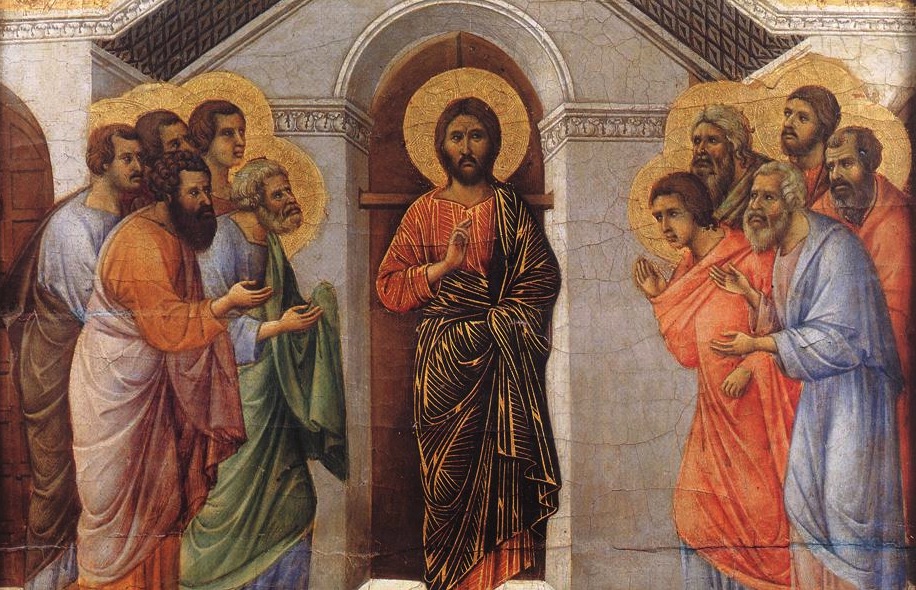Unwrapping the Gospel

The term "Gospel" in English is derived from the Latin term Evangelium. From this term we also derive Evangelize and Evangelization. Most christians and non-christians today refer to this as simply "the Good News". However, is this base understanding enough to convey the fullness of the teachings and preachings of Our Lord Jesus? Is it enough to spark the kindling of our hearts into roaring flames of desire to know truth and an embrace of the one true God? Can hearing this phrase alone garner a lasting conversion and a living faith?
The simple translation of The Gospel into 'Good News' conveys only the title of the formula for individual salvation put forward by our Lord Jesus Christ, and while the Gospel is indeed good news to those who hear it, hearing it should lead us to something greater. The Gospel is not simply a message to be relayed through words, but is a way of life to be lived out daily and in every situation. In this way the fullness of the Gospel is not expressed in mere speaking and hearing, but this exchange is the first step to a way of life. A way of living whose path is laid out for us by God Himself (John 14:6).
The Apostles and earliest christians called this mode of living, The Way of Christ (CCC Par. 1696). Jesus Christ is God, therefore what Jesus did, said, and showed his Apostles and Disciples carries with it the authority of God. Jesus revealed God's plan of salvation for His creation which had gone astray and was looking for a way back. Jesus offered to his followers, and those who did not follow him, the truth. The truth that no matter what anyone says, God loves each and every one of us and He desires for us to return to Him, regardless of our past mistakes or sins (CCC Par. 1849). As the divine physician Jesus provides the universal prescription for the sickness of sin - sin of every kind and degree. Sin that separates us from God, from each other, and from holiness. (Luke 5:31-32)
The Way of Christ is the road which we must walk that leads us to the Father. It is a medicine to be accepted, ingested, and allowed to work throughout our being. Venturing forth on Christ's Way, not the way of the world, leads us directly to God the Father and His embrace. The Way of Christ is direct. Jesus provides us with the unobscured Way to God! He does not provide us with a supposed treasure map wherein the message and destination is cryptic, designed to cause the reader to stumble and wander, to remain searching and lost, but rather He provides a direct path that is unmistakable and clear. This is good news!
But, contrary to what our permissive world says, Jesus himself said that His Way, though clear and direct, was a narrow path with a narrow gate and many would not be able to walk it or enter through it (Matthew 7 13-14). So what does this mean then to me the common man or woman?
While God shows us the Way, it is a journey to be undertaken, and we must make the decision to leave the perceived safety and comforts of our current lives and world-views behind. For we have been given the gift of a free will and only we can choose what we will do with this good news. Only we can decide to follow the Truth where it leads, or to continue to follow the false messages of the father of lies which leads us along the wide path to destruction. (2 Peter, 2:1-3).
The Gospel requires action on our part aside from just hearing it or speaking it. The Gospel is a message wrapped up in love and delivered to us daily as a gift, but we must unwrap it, see it for what it is, and decide what to do with it.
In whatever state you find yourself in at this moment, make your decision today to follow the Way of Christ and take your first steps to new life. Jesus is alive in His Church and His promise to us is this; that God will not condemn you for your transgressions against Him if you seek Him in humility and with a repentent heart (John 3:16-18). God has called you to read this for a reason. Take a minute to speak with Him, and He will not disappoint you (Luke 11: 9-10). Even if you believe that you cannot be forgiven, He forgives, and His forgiveness is not fickle, it is everlasting!
